How to make the hero of your movie win all the battles and return glorious to his land (The Hollywood Script Model: and XIV)
Two things you have to know
When we are going to write a film script, there are two things we should always know: how the movie starts and how it ends, that is, how your hero starts his journey and where and how he finishes it. If you have not clarified these two points, do not write, just take notes, draft some maps, to be able to leave, because if you do not know where you are going, as in real life, you will lose yourself.
If you know where your character starts his or her journey, and where it ends, your job as a scriptwriter will be to fill the stages of your hero's journey, and that will surely be very fun, like life itself if we have a goal, a destination that we have imposed ourselves and for which we fight daily.
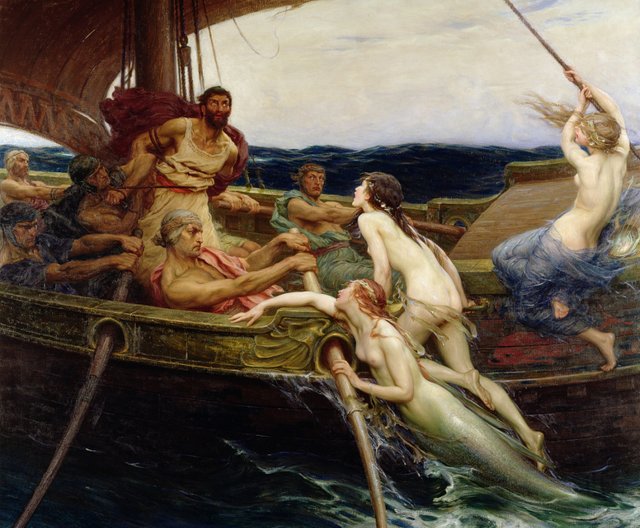
We know that Odysseus departs from Troy, after winning the war, and we know that he will reach Ithaca, his home, along with his wife Penelope and his son Telemachus. It is the basis of every story. Now, the work of the creator, the scriptwriter, will be to fill the stages of the journey with difficulties, with cyclopes, with sirens, with witches, even with friendly islands where they offer him to stay, to form a new family, to divert him from his original route. But the essential hero will not deviate, will use all his energy and talents to the fullest to succeed in all those battles, and culminate the journey at the point that has been drawn from the beginning.
That is why he is a hero, because he has conditions that normal human beings do not possess. It is educational, it helps us, it inspires us as a model, we try to imitate his or her efforts in our lives, although we know that we will never be able to be like him or her. But every time we fall, every time we are in a dilemma, we can always think of the heroes that have inspired us, and try to act like them, within our possibilities. That's why we like movies so much, because we all want to be heroes in our own lives.
We are moved by the heroes and the heroines, in the sense that in Latin has the word compassion: co-patiens, I am capable of suffering the same as the other person. We see then that cinema and art, as Aristotle said in Poetics, give us a sentimental education, which is more powerful than the other, the rational education of receiving and accumulating knowledge and data. In films and art you accumulate sensory experiences, memories, emotions, and that unconscious sentimental load usually has more power over you, over your actions, over your beliefs, than all the books you can read, memorize and repeat.
What brings the hero from death and hell?
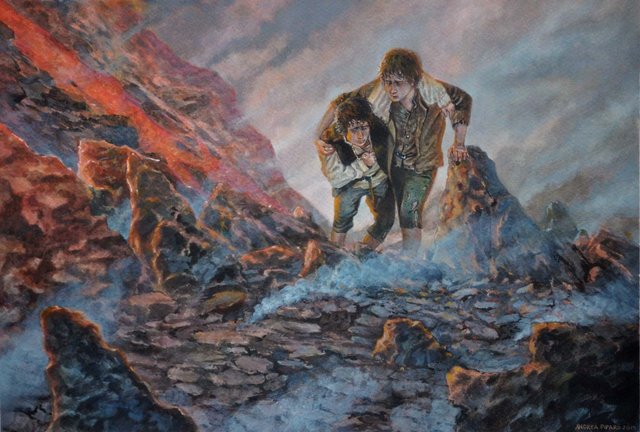
In reviving, reborn, leaving the cave, the basement, the dungeon, comes with a new human condition, more than human, superhuman, has become a hero.
In some stories, at this moment the mentor, the teacher, the master, usually disappears, usually dies. Remember Star Wars, and you will see that Master Yoda disappears, so that Obi Wan Kenobi can exercise his role as a hero. Gandalf, in The Lord of the Rings, falls into an abyss, disappears, so that Frodo depends only on himself in his struggle to bring the ring to its destination.
Even in the funny Kung Fu Panda, Master Shifu has to disappear so that the fat and eater Panda will discover that he is a true master of kung fu, and then he goes out to fight and defeat the powerful enemies who want to destroy the village and the nation.
It happens in the movies, it happens in our lives
The symbolic meaning of this rebirth is clear. Every so often in our lives we have a crisis, we go down to hell. The things we believed in stop working. Someone we love is leaving us. A very close person dies. We lose the job to which we had dedicated our happiest hours. A war is unleashed.

source
In my country, Venezuela, it has happened to a whole generation. Millions of my compatriots have emigrated, others like me have stayed. Those who have left and live for example in the United States, are spending a dark night of the soul let's say that in the city that I love the most there, New York.
If they transmute, they will come out of the darkness with new lights, with new abilities, that will give them more strength in their battles and their vital journey. Those of us who are here fighting, writing, filming, we also live that dark night of the spirit every time the sun goes down, and every dawn we have to go out with new powers, with new weapons, to fight against a collapsing world , against enemies hidden in every corner, who spy on us, who can persecute us, lock us up, kill us. Sic, literally, in real life. What we live here is not a movie, although movies can educate us to survive in this dark world in which we dwelve, which seems like the movie Dark City.
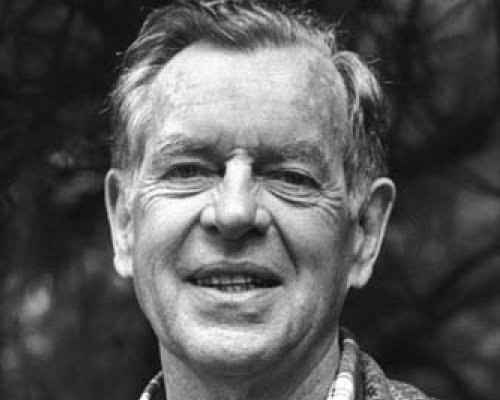
Nothing that had been not indicated by Joseph Campbellin his book The Hero of the Thousand Faces.
The journey of the hero is a deep psychological structure, common to the whole human race, and that is why such a way of telling is repeated in all cultures, from the nomads of the Gobi desert, through the prophets of the Old Testament, the Odyssey of Homer, fairy tales or Hollywood movies.
One way to understand it, at the level of the whole of humanity, would be to use the notion of the collective unconscious of Jung. We share as a species those archetypes, the stable universe, the call, the search, the struggle, the mentor, the allies, the enemies, the battle, the descent into the underworld, the resurrection, the mother of all battles (Armageddon) and the happy return, the warrior's retreat, or his disappearance, when he goes to the stars, ascends to the heavens. Even in the western, the hero moves away on his horse once he has cleansed the town of villains, the sunset falls, there is a full moon, and in the background you hear the voice of a woman who sings happily, in the redeemed village.
On the individual level, those images, those archetypes, would be in our unconscious, and to analyze them Campbell uses Freud, the categories of id, unconscious, dream and nightmare. That is, the categories of the hero's journey are in the individual and in the species, we have them embedded in our genes, and that is why we react with empathy to the adventures and misadventures of the heroes of the filmic stories.
The job to excite the other
The job of the scriptwriter, and of every storyteller, is to excite others, to make them cry, laugh, frighten them, fill them with emotion. Therefore, the resource of the hero's journey is the basic tool for our scripts.
I have published 15 posts, fifteen stages. But there is not a fixed measure, there is not an iron law. They can be less, they can be more, everything depends on your story, and your personal muse, that she or he that visits you every night when you face the blank page of your computer, and start typing.
But in general, when leaving the cave, when returning from hell, the hero has super powers and can, like Neo, stop the bullets in the air. He fights then the mother of all battles, which can last about two or three sequences in your script, and ultimately should triumph (although there are heroes who die, like Christ, do not forget).
There may be a double ending, in the third act. You think that the hero has triumphed, that he has already won, that the antagonist is dead, and suddenly, a hand takes the foot of the naive girl who thought she was already safe (Carrie) or the evil robot can still stretch his metal arm and try to kill the humans who are going to save the human race from the apocalypse in the future (Terminator). This resource is so used that it may seem ridiculous. But if you use it with talent, it will allow you to excite your viewers to delirium.
It does not have to be a battle in which an enemy soldier revives, and fires one last bullet that can kill the hero. It works even in romantic comedies. When the couple in love finally seems to have won, she decides to leave, takes her suitcase, and departs in a taxi to the airport. Her lover doubts, he's being tempted by the other woman, or the work did not allow him to arrive to the final appointment, or is trying to talk to her and the lines are congested, or he goes through the streets of New York and finds a St. Patrick's parade and is trapped. We do not know how (you as a scriptwriter must discover it), but in a last effort he will try to find her.
Maybe we'll see her and not him. The poor woman looks at the hour, the flight is going to take off, she checks her phone, there are no messages, there are no calls, and, disappointed, she starts walking in the queue, she goes to London, goodbye to the love story, but suddenly he appears and screams, runs, the police try to stop him, but everybody intervene: Let them talk, it is a love story!
It happens in Woody Allen's Manhattan, it happens in one of the summit chapters of Friends between Rachel and Ross.
The rest of the warrior
And, finally, the warrior, the hero of your movie ... Will he rest, will he disappear, will he retire with his wife to a country house to plant wheat and to reproduce himself?
You are the only one who knows that. But it is the closing of the cycle, the curvature of the arch. If you have fulfilled the steps of the hero's journey, nothing guarantees that the producers to whom you bring your script, your project, will buy it, that it will go to film it and that you will finally see it on screen, that there will be an opening with the actors, with red carpet, with mimosas, flashes, elegant outfits, and interviews for e-Enterntaiment Television.
But at least you will know that you structured your story well, that your hero evolves, changes, as humans should change throughout our lives.
And that is very much, dear readers.
In the next posts, we will continue talking about the structure and mechanics of the scripts, from various points of view of structure and content.
I hope that this series has been useful for you, and that the muses accompany you, but, above all, that when they arrive they find you working, dedicated, happy.
Óscar Reyes-Matute
(Samuel Ibn Motot / שמואל אבן מתת)
Video recommended:
Joseph Campbell: The Mith of the Heroe
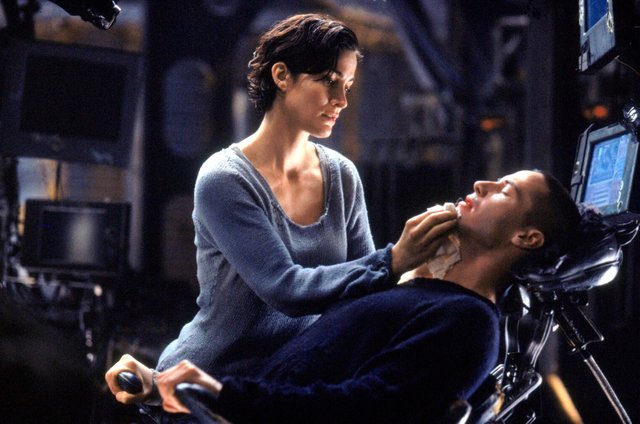
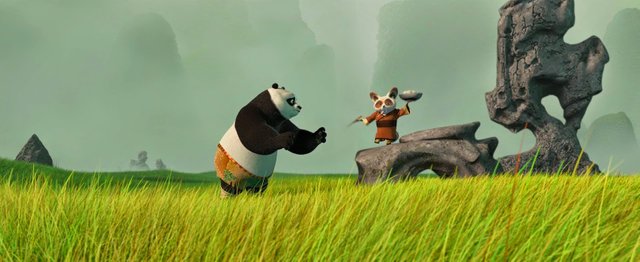
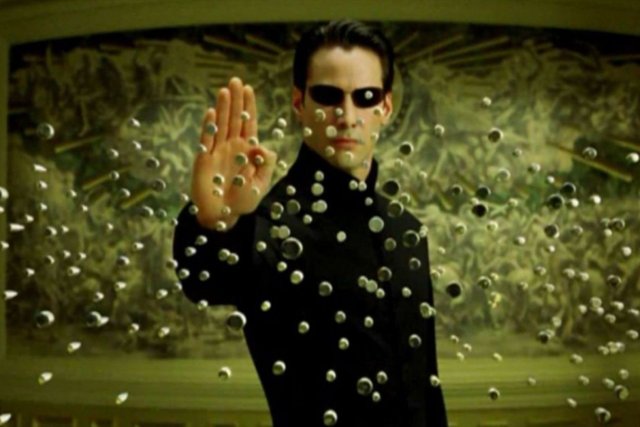
This post was shared in the Curation Collective Discord community for curators, and upvoted and resteemed by the @c-squared community account after manual review.
@c-squared runs a community witness. Please consider using one of your witness votes on us here
Congratulations! Your post has been selected as a daily Steemit truffle! It is listed on rank 1 of all contributions awarded today. You can find the TOP DAILY TRUFFLE PICKS HERE.
I upvoted your contribution because to my mind your post is at least 25 SBD worth and should receive 346 votes. It's now up to the lovely Steemit community to make this come true.
I am
TrufflePig, an Artificial Intelligence Bot that helps minnows and content curators using Machine Learning. If you are curious how I select content, you can find an explanation here!Have a nice day and sincerely yours,

TrufflePig